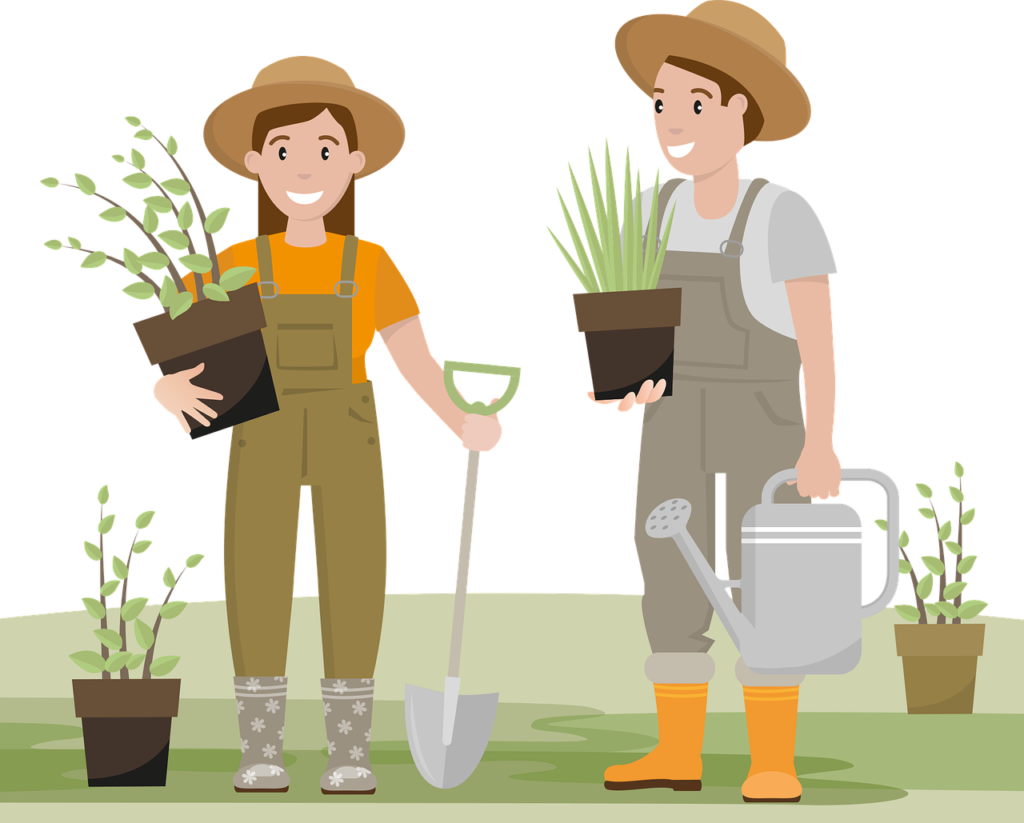Spring is coming and I’m a fan of the garden which got me thinking about the rewards of gardening as I age, besides the great vegetables and herbs. Gardening has long been known to provide a range of benefits for people of all ages. However, for older adults, gardening can be particularly beneficial in terms of physical, mental, and emotional health.
The range of physical movements involved in gardening, such as bending, stretching, and lifting, can help improve strength, flexibility, and cardiovascular health. Gardening also helps improve balance and coordination, reducing the risk of falls. These physical benefits of gardening make it a great low-impact exercise option for older adults.
Spending time outside in the fresh air can also improve respiratory health. Indoor air can be up to five times more polluted than outdoor air, and being outside allows you to breathe in cleaner air. In addition, the act of gardening can help improve lung function and reduce the risk of respiratory illnesses.
And let’s not forget the vitamin D you gain when you are exposed to sunlight. Vitamin D is essential for strong bones, a healthy immune system, and overall wellbeing. Spending time outside in the sunshine while gardening can help ensure you get the Vitamin D your body needs.
Gardening can help reduce stress and anxiety, providing a calming and peaceful environment. It can also help improve mood and reduce symptoms of depression. The sense of purpose and accomplishment that comes with gardening can be particularly important for older adults who may feel a loss of purpose after retirement.
Being outside in nature can also help you feel more connected to the world around you. Gardening allows you to connect with the earth, the seasons, and the natural world. It can be a calming and grounding experience, providing a sense of peace and tranquility.

To engage gardening throughout the seasons, here are some simple garden projects that can be enjoyed year-round.
In the Spring, plant a container garden. Container gardens are an easy and low-maintenance way to enjoy the benefits of gardening. Choose a few easy-to-grow plants, such as tomatoes, cucumbers, and peppers, and plant them in a container on a patio or place containers throughout your backyard.
Also consider getting a raised garden bed. Raised garden beds are a great way to garden without the need for bending over or kneeling down. They can be built at a height that is comfortable for the gardener, reducing the physical strain of gardening. Raised beds can be easily constructed if you are handy and if not, ask a handy family member or friend to help. These can also be purchased with easy assembly from hardware stores.
Herb gardens are a low-maintenance way to enjoy fresh herbs year-round. They can be planted in containers, raised beds, or directly in the ground.
In the Summer, plant a pollinator garden. Pollinator gardens are a great way to attract bees, butterflies, and other beneficial insects to the garden. For a butterfly garden, choose a sunny spot in the garden and plant flowers that are known to attract butterflies, such as coneflowers, milkweed, and butterfly bushes.
As Fall approaches, get active by cleaning up your garden. Remove any dead plants, weeds, and debris and add any healthy plant material to a compost pile. Fall is also a great time to divide and transplant perennials. This allows you to thin out overcrowded plants and create new garden beds. Make sure to water the plants well before and after transplanting to help them establish quickly. And don’t forget to plant spring-blooming bulbs such as tulips, daffodils, and crocuses.
In the Winter, build a birdhouse. Building a birdhouse is a fun and easy project that can be enjoyed indoors during the winter months. Choose a simple design and paint the birdhouse in bright colors to attract birds to the garden.
Gardening can provide a range of benefits for older adults. By engaging in simple garden projects throughout the seasons, older adults can enjoy the rewards of gardening year-round. So why not grab a trowel and get started on your garden today?


The Door County Seed Library is a wonderful resource. Located in all the DC Public Libraries. As are the DC Master Gardeners.